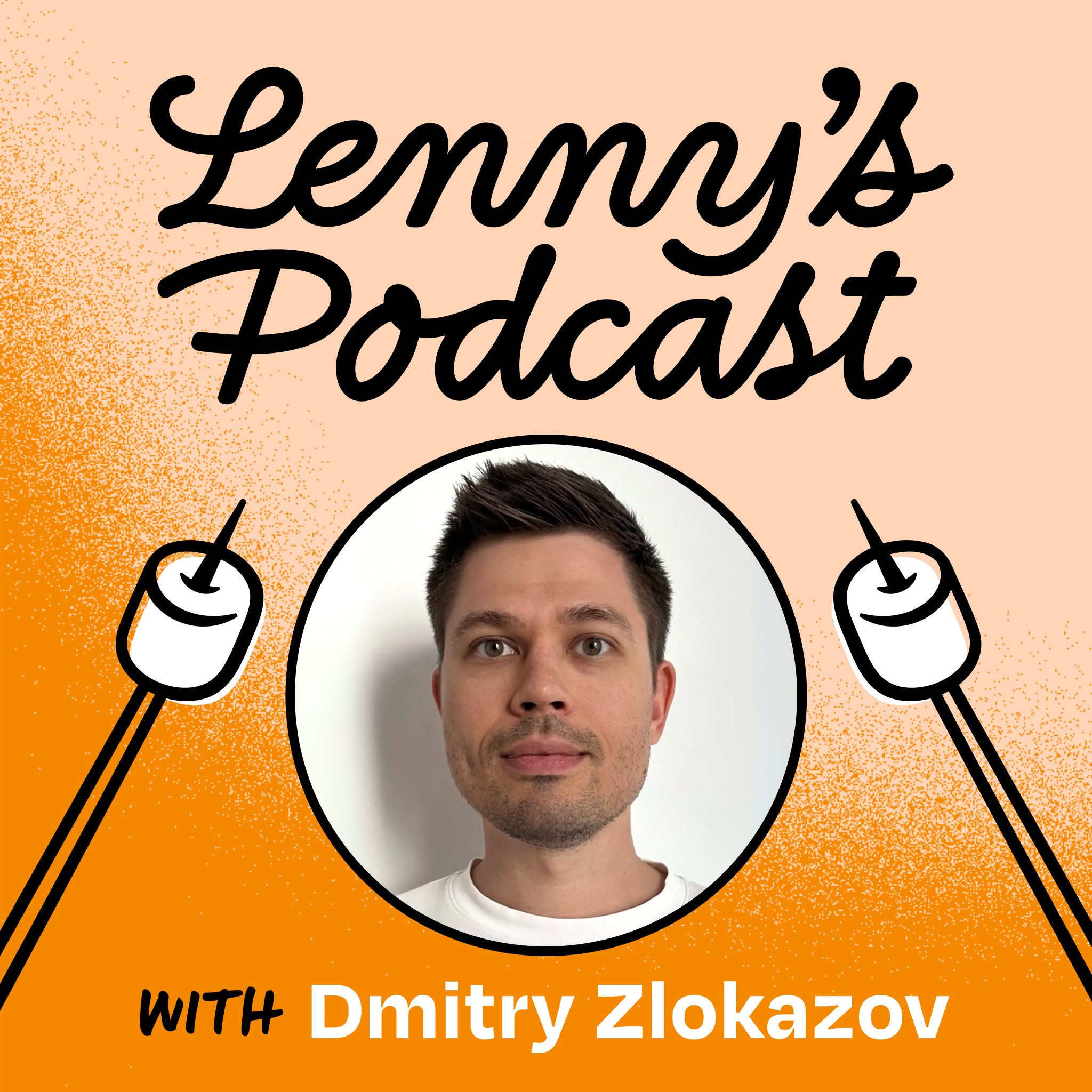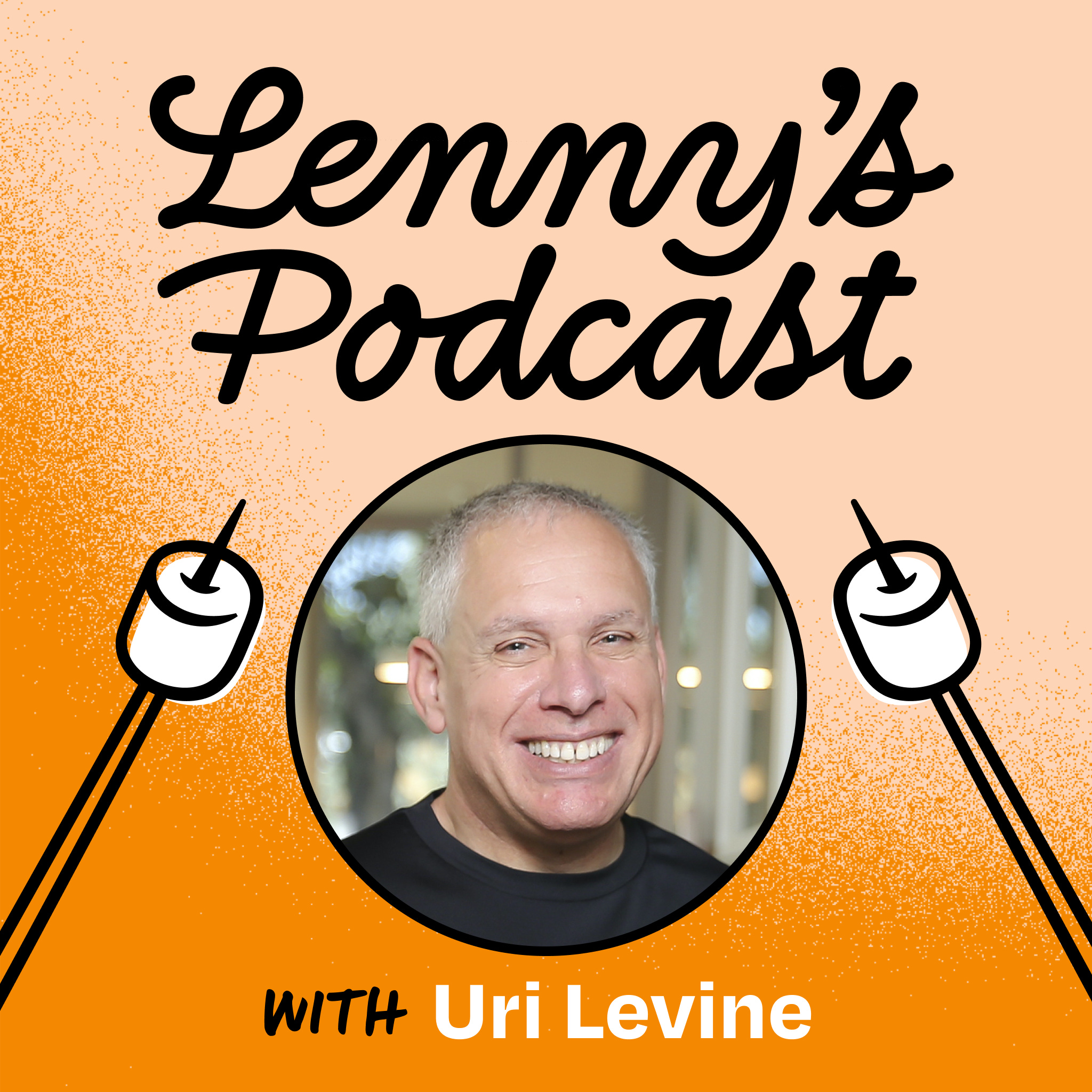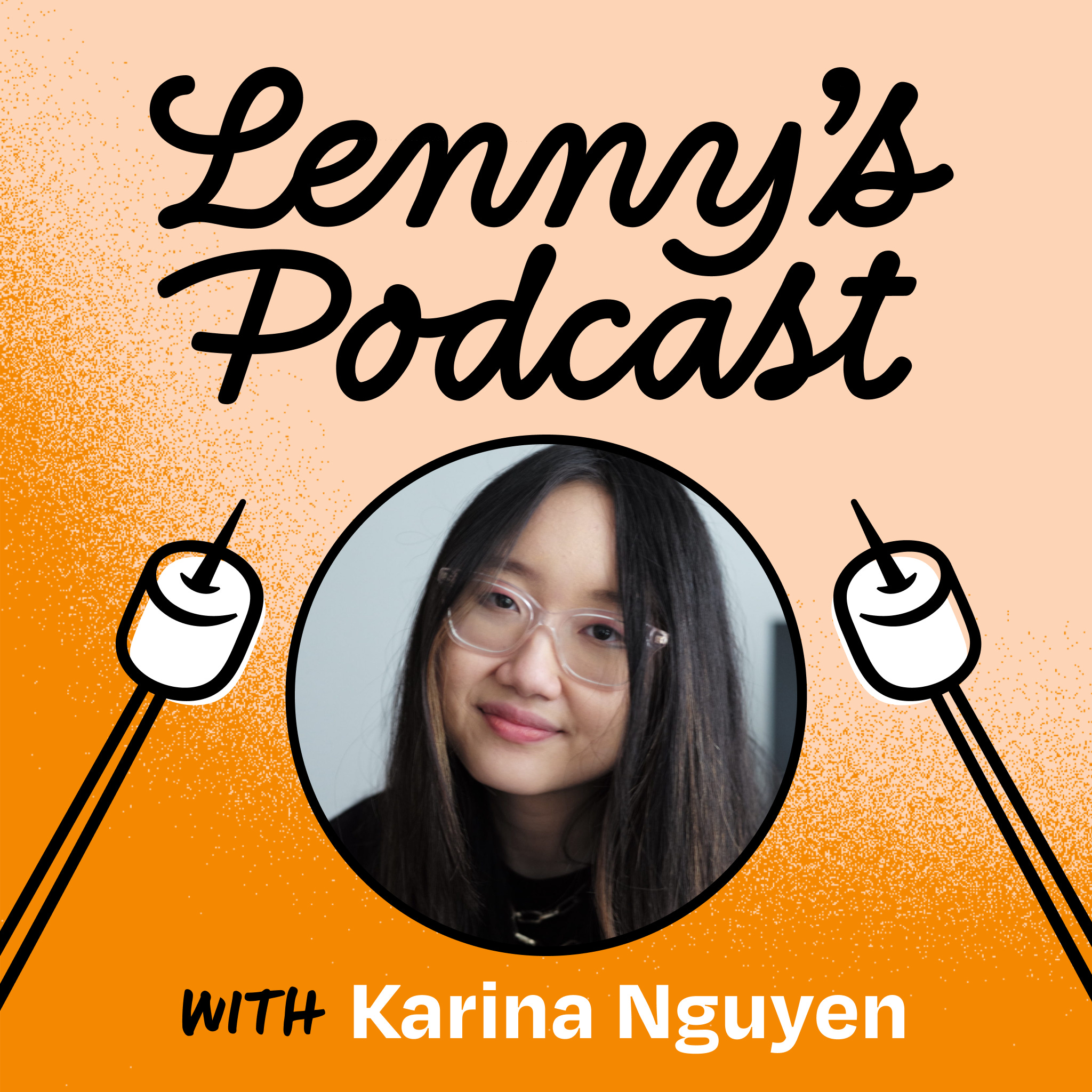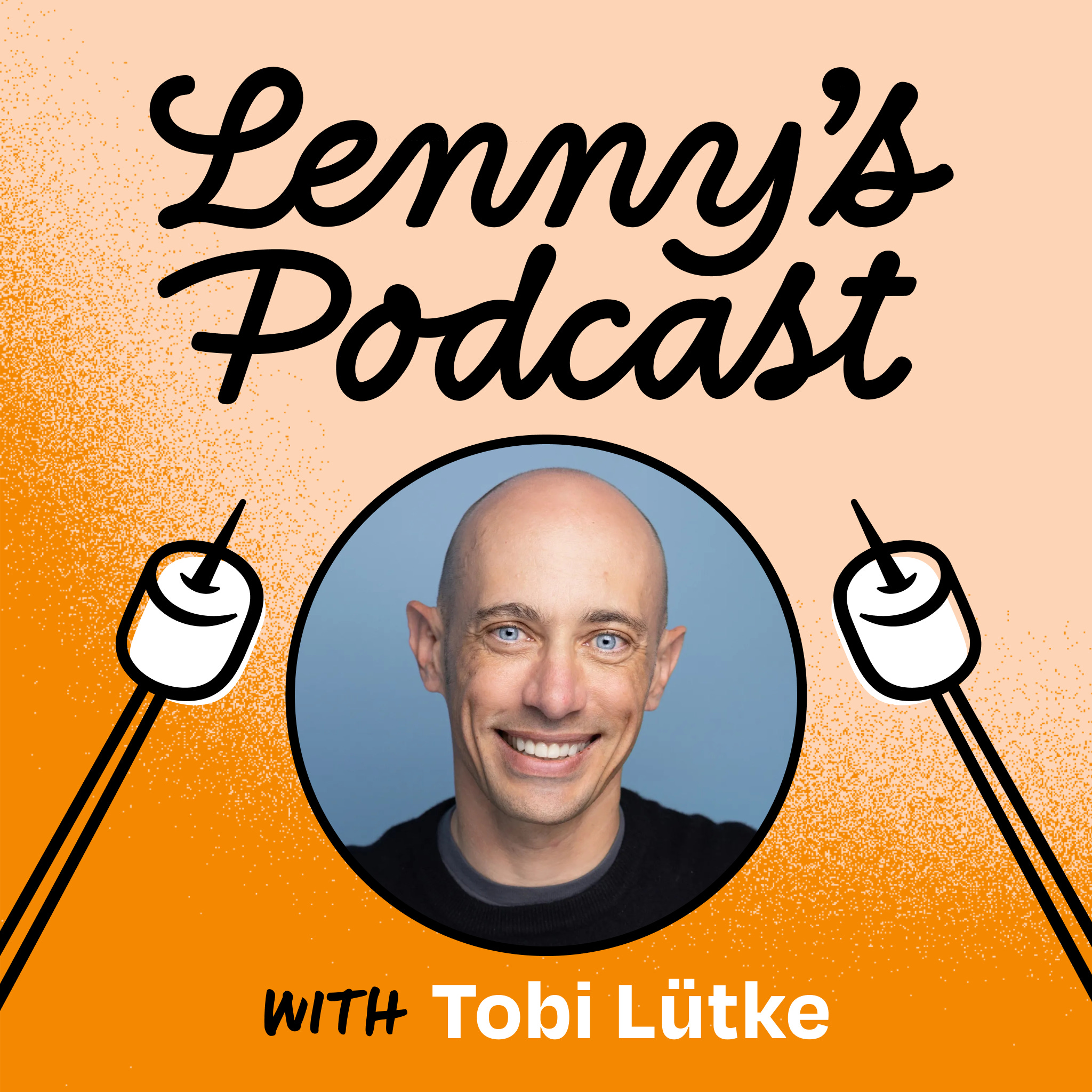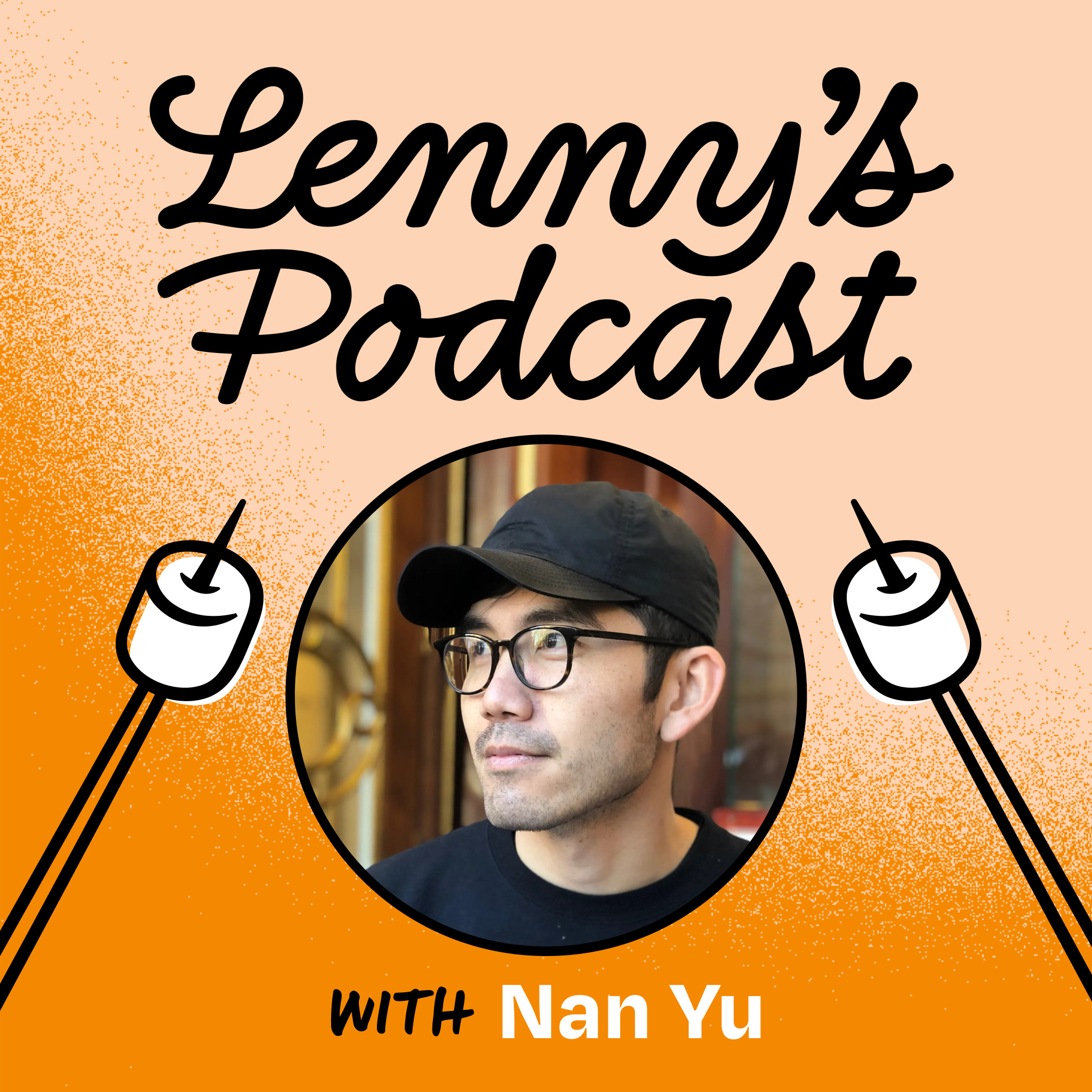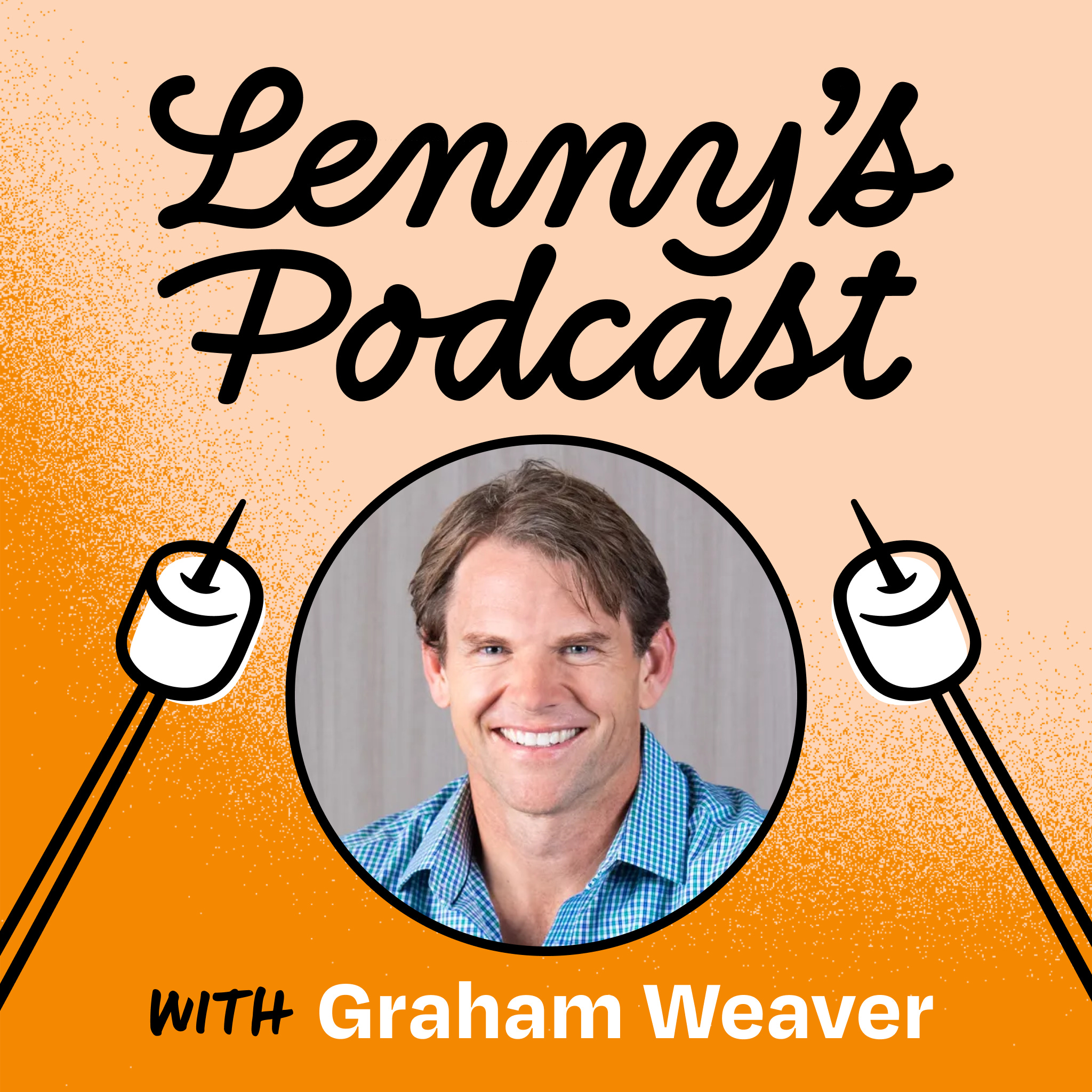
February 25, 2024 • 1hr 27min
How to discover your superpowers, own your story, and unlock personal growth | Donna Lichaw (author of The Leader’s Journey)
Lenny's Podcast: Product | Growth | Career
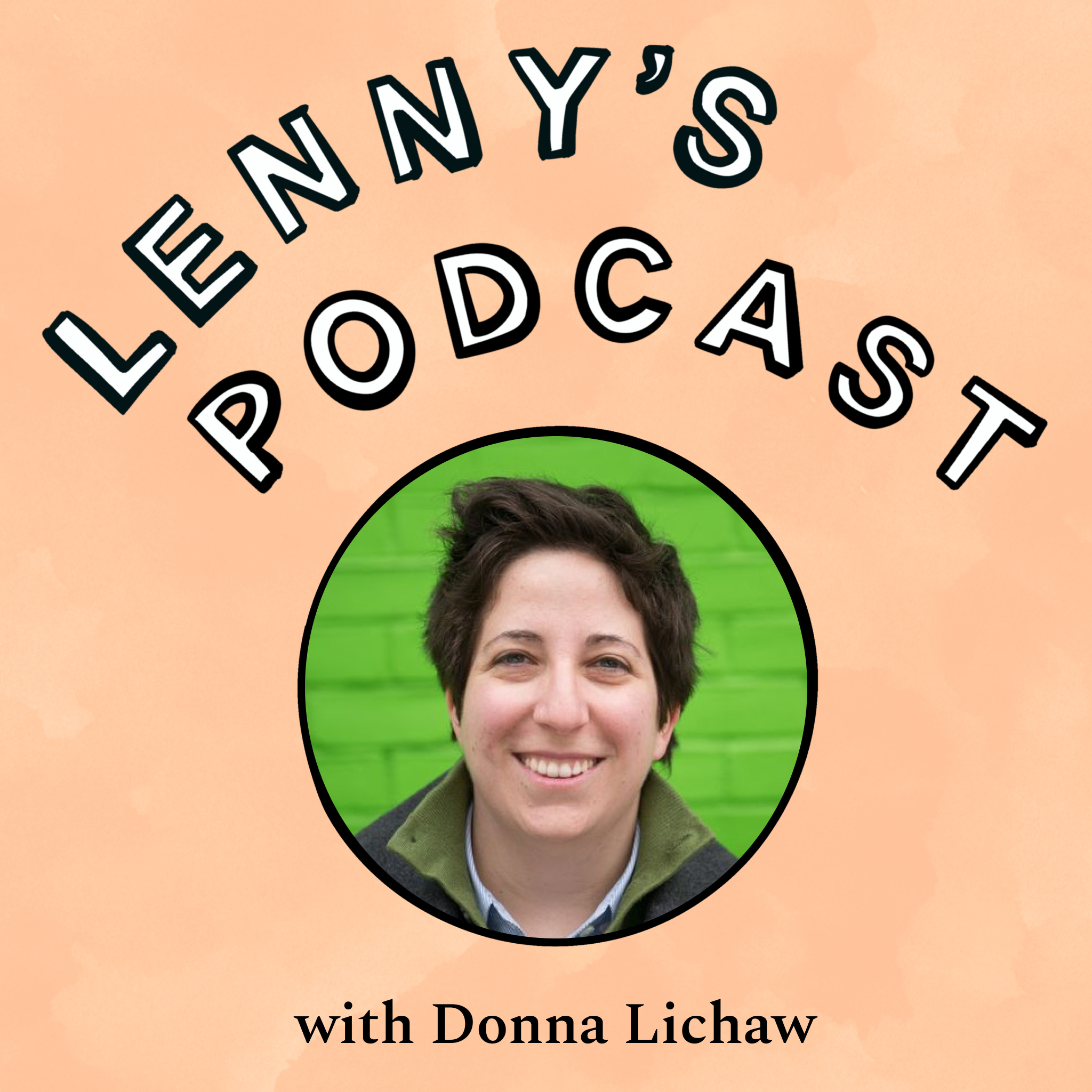
Key Takeaways
- The power of personal storytelling: Understanding and reframing your personal narrative is crucial for effective leadership and career growth.
- Identifying superpowers and kryptonite: Recognizing your unique strengths (superpowers) and potential weaknesses (kryptonite) can help you leverage your abilities more effectively.
- Reframing imposter syndrome: Rather than trying to eliminate feelings of imposter syndrome, consider how they may be serving you and driving growth.
- Experimentation for personal growth: Applying product development frameworks like small experiments and iterations can be powerful for personal and professional development.
- Energy management: Focus on activities that energize you rather than drain you for greater fulfillment and productivity.
- Visualization for goal-setting: Envisioning your ideal future in detail can help uncover subconscious goals and fuel motivation.
Introduction
In this episode of Lenny's Podcast, host Lenny Rachitsky interviews Donna Lichaw, an executive coach, speaker, and bestselling author. Donna helps founders, CEOs, and executive teams level up their leadership skills and scale their impact while staying true to their mission and purpose. The conversation explores Donna's unique approach to leadership development, which she calls "story-driven leadership," and how individuals can leverage their personal narratives to become more effective leaders.
Topics Discussed
Donna's Background and Transition to Coaching (4:29)
Donna shares her journey from product management and design to executive coaching. She describes a pivotal moment during a leadership retreat where she realized that traditional storytelling techniques weren't addressing the core issues leaders were facing:
- Teams wanted to be more influential and effective leaders
- Conflicts and interpersonal issues were prevalent
- Simply teaching storytelling techniques wasn't enough to solve these problems
This realization led Donna to spend the next decade figuring out how to help people become more effective leaders, ultimately developing her story-driven leadership approach.
The Power of Personal Storytelling in Leadership (8:38)
Donna explains why understanding and shaping your personal narrative is crucial for leadership development:
- We are naturally drawn to stories: Humans inherently want to be the heroes of their own stories
- Stories shape our reality: The stories we tell ourselves, whether true or not, influence our actions and perceptions
- Leadership as a journey: Effective leadership involves taking yourself and others on a mission with challenges to overcome
"The most effective stories are the ones that we tell ourselves. They may or may not be true. Our brain doesn't know the difference. Once you can really understand that, you may as well leverage it to be that hero." - Donna Lichaw
Changing Your Story for Better Leadership (14:49)
Donna provides an example of how changing one's personal narrative can impact leadership effectiveness:
- A CEO of a billion-dollar company struggled with negative self-talk
- Stories like "I'm too nice" and "Nobody listens to me" were affecting his leadership
- Through coaching, he gathered data from his team to challenge these beliefs
- Reframing his narrative led to more effective leadership and better team dynamics
The key takeaway is to take a data-driven approach to challenge and reframe the stories you tell yourself about your leadership abilities.
Understanding and Shifting Others' Stories (21:19)
Donna discusses how to address situations where others' perceptions of you may be affecting your leadership:
- Example: An executive perceived as "too quiet" by her team
- Solution: Communicating her processing style and listening approach to the team
- Result: Improved team dynamics and understanding of different work styles
This example highlights the importance of clear communication and understanding different work styles within a team.
Reframing Imposter Syndrome (25:41)
Donna offers a unique perspective on dealing with imposter syndrome:
- Embrace rather than eliminate: Instead of trying to get rid of imposter syndrome, consider how it might be serving you
- Identify the function: Ask yourself, "How is this feeling of being an imposter serving me?"
- Example: For some, imposter syndrome drives them to work harder and learn more
- Find balance: Recognize when these feelings are helpful vs. when they lead to burnout or unnecessary work
"Certain stories we tell ourselves are actually quite functional and do not necessarily need to be rewritten." - Donna Lichaw
Exploring Different Types of Kryptonite (31:28)
Donna introduces the concept of "kryptonite" - perceived weaknesses that may actually serve a purpose:
- Avoidable kryptonite: Weaknesses that can be mitigated or delegated (e.g., scheduling difficulties)
- Functional kryptonite: Perceived weaknesses that may actually be strengths in disguise (e.g., dyslexia leading to big-picture thinking)
- Reframing weaknesses: Looking at how perceived weaknesses might actually be serving you in your role
The key is to identify which types of kryptonite to avoid and which to embrace and leverage.
Identifying and Leveraging Strengths (36:41)
Donna emphasizes the importance of focusing on strengths rather than trying to fix weaknesses:
- Adaptability: Recognizing that different leadership styles can be effective
- Energy management: Focusing on activities that energize you rather than drain you
- Practical tip: Conduct an "energy audit" of your daily activities to identify what gives you energy
Lenny shares his personal experience of how focusing on energy-giving activities led to the creation of his newsletter and podcast.
Identifying Superpowers (43:53)
Donna provides guidance on how to identify your unique strengths or "superpowers":
- Reflect on peak experiences: Consider moments from childhood and recent past when you felt most alive and effective
- Look for patterns: Identify themes across these experiences to uncover your superpowers
- Example: An executive discovering her superpower as a "connector" rather than having "attention to detail"
"Pull your superpowers out of your stories from your past, your present, and then eventually figure out how to apply them and transpose them to your future." - Donna Lichaw
Running Experiments for Personal Growth (56:39)
Donna explains how to apply product development frameworks to personal growth:
- Small experiments: Start with tiny, low-risk experiments to test new behaviors or ideas
- Iterative approach: Use learnings from small experiments to inform larger changes
- Holistic evaluation: Consider thoughts (head), emotions (heart), and physical sensations (hands) when assessing experiments
This approach allows for more informed and mindful personal development.
Using Product Frameworks for Personal Growth (1:01:52)
Donna discusses how product development frameworks can be applied to personal growth and leadership development:
- Double Diamond framework: Using divergent and convergent thinking for personal problem-solving
- Lean methodology: Applying the concept of small experiments and iterations to personal growth
- User-centered design: Considering the needs and perspectives of team members in leadership approaches
These frameworks provide structured approaches to personal development that many leaders are already familiar with from their product work.
Identifying Subconscious Goals (1:12:41)
Donna shares a technique for uncovering subconscious goals and desires:
- Visualization exercise: Imagine your ideal future in detail, engaging all senses
- Reverse engineering: Work backwards from the envisioned future to identify steps needed
- Iterative process: Refine the vision and steps as you gain more clarity
"Dream it, see it, and then start taking steps to get there. What you end up creating will very likely be very different than you ever imagine, but this is what's going to fuel you." - Donna Lichaw
Envisioning Impact (1:15:27)
Donna emphasizes the importance of focusing on the impact you want to make rather than specific job titles or roles:
- Clarify the impact you want to have in your work and life
- Remain open to different paths for achieving that impact
- Use the envisioned impact as a guiding force for decision-making
Lightning Round (1:16:44)
In the lightning round, Donna shares:
- Favorite books: Her own books, as they synthesize her favorite ideas and philosophies
- Recent TV show: "For All Mankind" on Apple TV+
- Favorite interview question: "Imagine it's a few years out and you've had the best few years of your life. What would you be telling me?"
- Favorite product: Various fidget toys for maintaining focus during video calls
- Life motto: "Isn't that interesting?" - to maintain an optimistic and curious stance
- Favorite Dolly Parton quote: "Find out who you are and do it on purpose."
Conclusion
This episode of Lenny's Podcast with Donna Lichaw offers valuable insights into leadership development through the lens of personal storytelling. By understanding and reframing our personal narratives, identifying our unique strengths and potential weaknesses, and applying product development frameworks to personal growth, leaders can become more effective and authentic in their roles. Donna's approach emphasizes the importance of self-awareness, experimentation, and focusing on impact rather than adhering to preconceived notions of leadership. By embracing these concepts, listeners can work towards becoming more empowered and impactful leaders in their respective fields.
